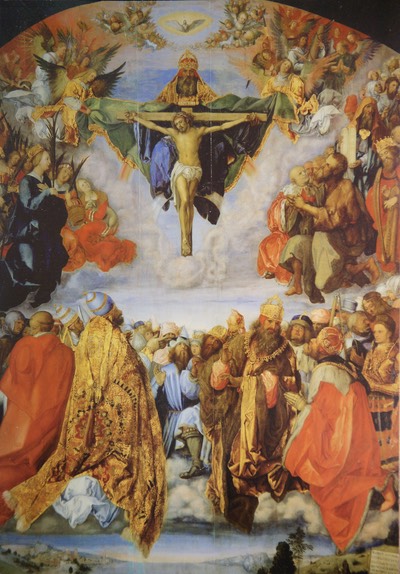Anonymous Catholic cardinal argues for a next pope very unlike Francis
A detail of vestments decorating a statue of St. Peter, as is customary on the saint's feast day, is seen during a Mass for the feast of Sts. Peter and Paul celebrated by Pope Francis in St. Peter's Basilica at the Vatican June 29, 2023. (CNS/Lola Gomez)

by Christopher White
Vatican Correspondent
Follow on Twitter at @cwwhiteNCR
Send your thoughts to Letters to the Editor. Learn more
Rome — March 7, 2024
Share on FacebookShare on TwitterEmail to a friendPrint
Just one day after Pope Francis visited Rome's Gemelli Isola Hospital on Feb. 28 for unspecified diagnostic tests following what the Vatican described as a "mild flu," an anonymous memo was published by a cardinal sketching a job description for the next pope.
The profile was signed by an unidentified person calling himself "Demos II," a nod to a 2022 secret memo later revealed to have been penned by the late Australian Cardinal George Pell, who dubbed the Francis pontificate a "catastrophe."
The new letter, titled "The Vatican Tomorrow" and released simultaneously in six languages, argues that Francis has sown "confusion" over church teaching and claims that the church is "more fractured than at any time in her recent history."
According to the memo, the next pope must reject doctrinal "ambiguity" and reclaim theological orthodoxy. In addition, the author writes, he must govern not as an "autocrat" and promote greater collegiality among the College of Cardinals.
In some respects, the Demos II memo — which is said to have been written by one author after consultation with other cardinals and bishops — is a milder version of its foundational text.
Advertisement
The new document begins with conciliatory language that praises Francis' outreach to the poor and marginalized, though it quickly pivots to its criticism of his style of governance and the pope's approach to fundamental questions of faith and morals. One detects that the author seems to want to make a broad case for a course correction in the next conclave, while attracting potentially sympathetic cardinals to come along with him.
Here in Rome, there's been some speculation that the memo's author, like that of the original Demos memo, comes from the Anglo-Saxon world. Curiously, among the handful of cardinals present at the Pell memorial Mass in January were his Anglo-Saxon allies: American Cardinals Raymond Burke, James Harvey and Edwin O'Brien, and German Cardinal Gerhard Müller.
However, profiles of the next pope are nothing new.
In 2020, New York's Cardinal Timothy Dolan sent out copies of the then-newly released book The Next Pope, penned by George Weigel, to all of the world's cardinals. In another book under the same title that year, EWTN's Edward Pentin included profiles of 19 "leading" papabile that could succeed Francis. And back in 1995, NCR's Peter Hebblethwaite authored a book (again, under the very same title) surveying a possible future church after Pope John Paul II.
But along with who might succeed Francis, the question of how that might happen is an equally discussed topic following the publication of a sweeping new essay by respected Italian church historian Alberto Melloni.

